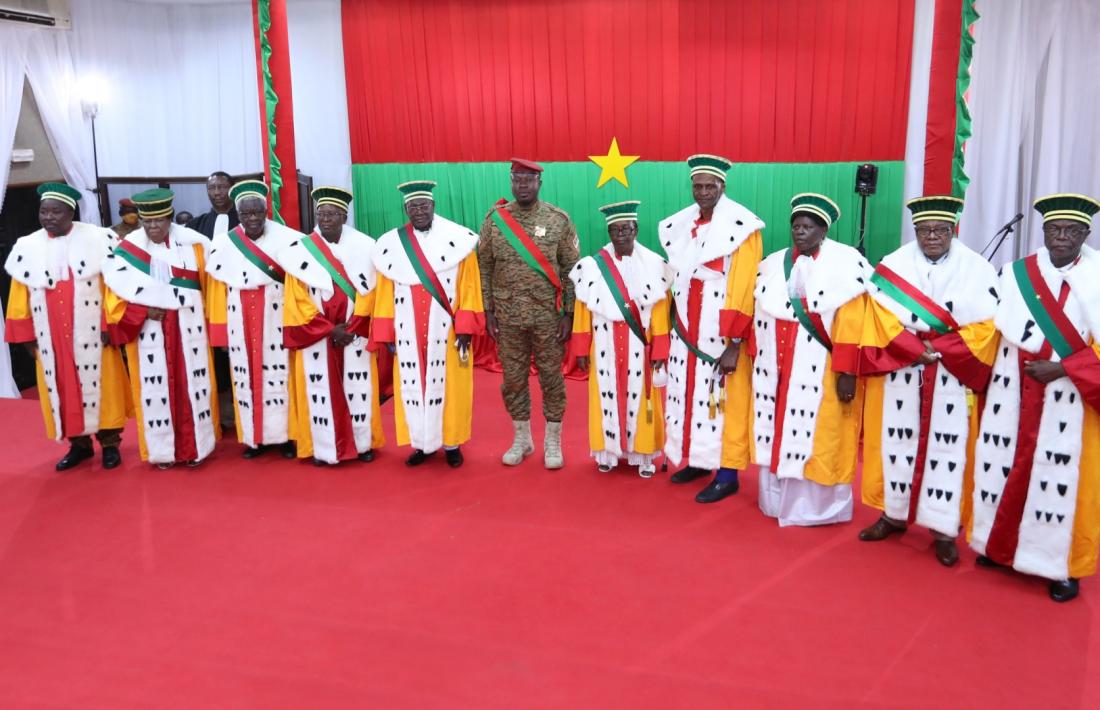
Colonial-era wigs were never part of Burkina Faso’s courtroom attire
- This article is more than one year old.
- Published on January 24, 2025 at 14:05
- Updated on January 30, 2025 at 15:44
- 3 min read
- By Mary KULUNDU, Monique NGO MAYAG, Emilie BERAUD, AFP Kenya, AFP Senegal
On January 14, 2025, a Facebook page called “United Africa” shared a post with its 200,000 followers claiming that Burkina Faso had banned “colonial-style white wigs” in its courts.
“Burkina Faso eliminated colonial-style white wigs in courts as part of decolinization efforts to promote African identity and modernize judiciary (sic),” reads a graphic shared in the post.
Comments praising Traore for the purported move described him as a “true son of African soils”.

The same claim was repeated on Facebook (here and here), X (here and here) and by news publications (here and here).
The claim also circulated in French-speaking countries (here and here).
Africanews, a pan-African news network, also made the same claim in a story that was later taken offline after AFP Fact Check inquired about its sourcing.
Legal practitioners across Africa have for years debated the need to abolish colonial-era court attire, including the use of wigs and robes, as part of efforts to transform their judicial systems.
In 2011, Kenya’s then-chief justice Willy Mutunga criticised the dress code and chose to take his oath of office in a suit (archived here).
A similar debate took place in Malawi in 2017 (archived here).
In Zimbabwe and Ghana, colonial-era court attire has been decried as inappropriate for modern-day Africa, with many questioning the need to spend public funds on specialist judicial clothing (archived here and here).
But claims that Burkina Faso, a former French colony, has banned wigs in court are false.
No ban
Christophe Birba, a lawyer at the Burkina Faso Bar, told AFP Fact Check that the colonial-era wigs were never a part of the dress code in courts.
“In Burkina Faso, there are no blonde wigs in the attire of judicial personnel. Such a thing has never been part of the work uniform!” Birba said.
“There is therefore no ban in this regard.”
In 2022, Burkina Faso’s presidential office provided AFP with images of constitutional court judges at a presidential swearing-in ceremony, showing them in regalia that included togas and flat-topped green caps — without white wigs.

Similarly, news reports (here and here) have previously featured images of Burkina Faso magistrates dressed in a similar style to their constitutional court compatriots (archived here and here).

But on April 28, 2023, Burkina Faso’s ministers adopted a decree promoting the use of traditional fabric for economic and cultural identity purposes (archived here).
According to the order, judicial officers are to use Faso Dan Fani -- a handwoven cotton fabric from Burkina Faso -- to make the garments. The material has a cultural significance in West Africa.
On October 24, 2024, a Burkina Faso publication carried a report about Justice Minister Edasso Rodrigue Bayala confirming that the country’s magistrates and clerks had made the sartorial transition (archived here).
“Today, this attire is five times cheaper than the previously imported courtroom garments for magistrates and clerks,” Bayala said.
According to the news report, the new outfit consists of a black cloak with gold decorations, a Burkina Faso flag, and a flat-topped hat.

Burkina Faso’s new leader Traore came to power in September 2022 after ousting Damiba, who months earlier had staged a coup (archived here).
Traore has made the sovereignty of his country a cardinal point of his governance and has turned his back on former colonial ruler France.
Clarifies in paragraph 16 that the ceremony was held to swear in the president, not the judgesJanuary 30, 2025 Clarifies in paragraph 16 that the ceremony was held to swear in the president, not the judges
Copyright © AFP 2017-2026. Any commercial use of this content requires a subscription. Click here to find out more.
Is there content that you would like AFP to fact-check? Get in touch.
Contact us
